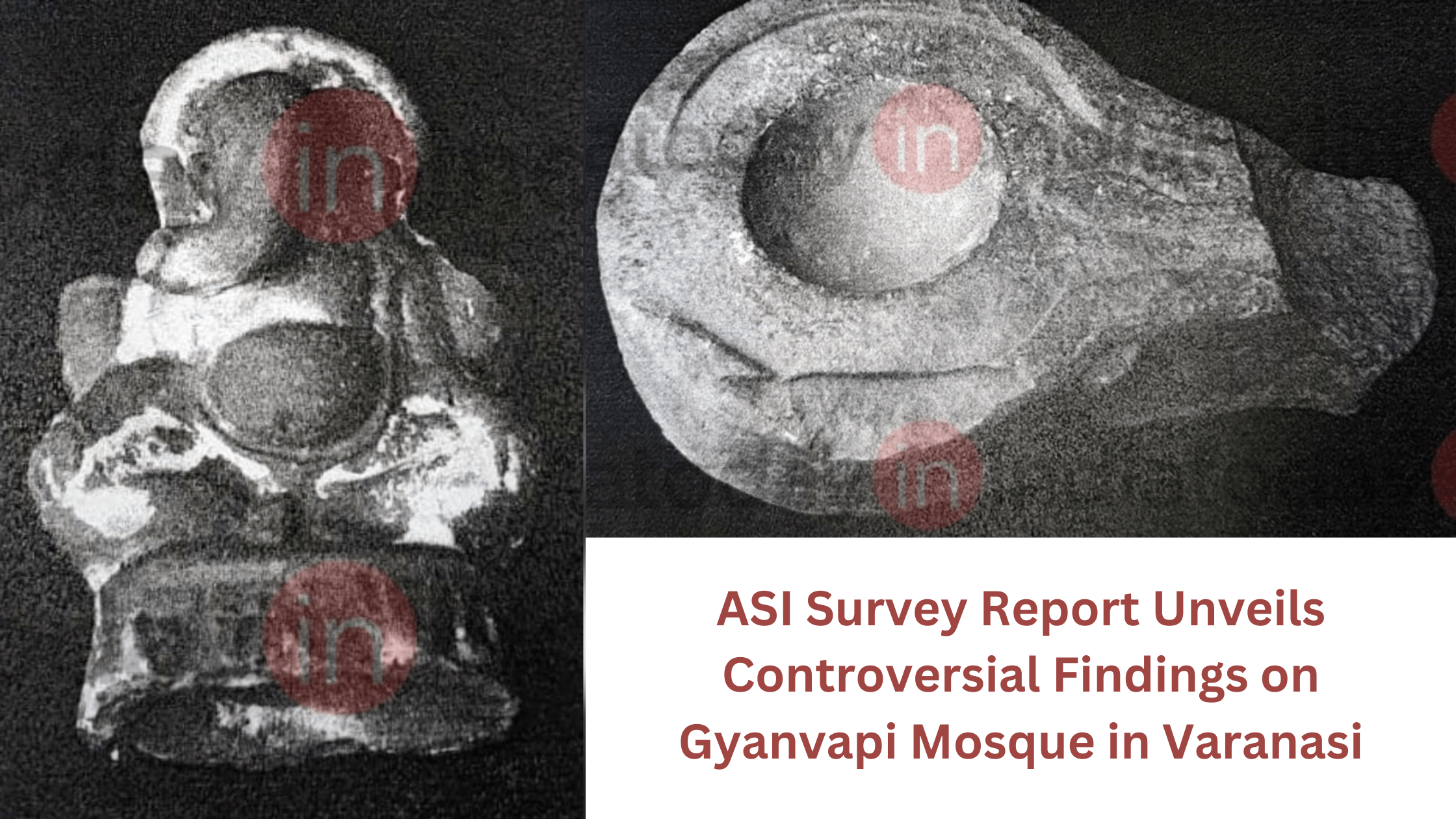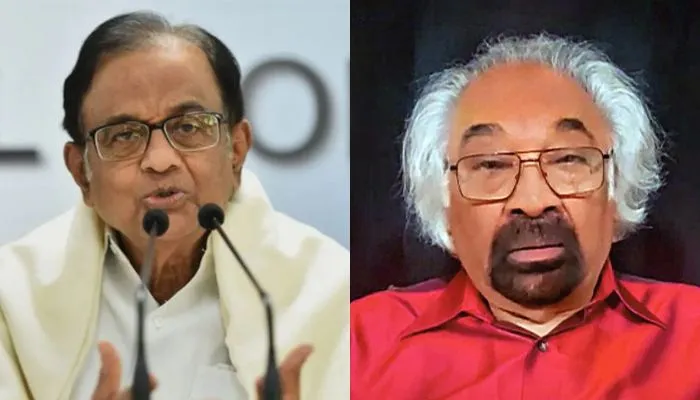The Archaeological Survey of India (ASI) survey report on the Gyanvapi Mosque in Varanasi has stirred fresh controversy, as exclusive photos obtained by India Today reveal fragmented statues of Hindu deities and Persian inscriptions, suggesting the mosque’s construction atop the remains of a Hindu temple.
Key Findings from the ASI Survey Report:
- Statues of Hindu Deities: The photos depict broken idols of Hindu deities, including Hanuman, Ganesha, and Nandi, within the mosque complex. The report refers to these fragments as evidence of a pre-existing Hindu temple.
- Yonipattas and Shiv Linga: The survey team discovered yonipattas (base of a shivling) and a shiv linga with its bottom part missing, indicating potential remnants of the earlier temple’s architecture.
- Coins, Inscriptions, and Objects: The findings include coins, a sandstone slab inscribed in Persian, a pestle, and statues in various states of damage. The Persian inscriptions on stone slabs provide an account of the temple’s demolition during Aurangzeb’s reign.
- Debris Integration into Mosque Construction: Vishnu Shankar Jain, representing the Hindu side, claims that the report details the positioning and measurements of broken idols, supporting their assertion that debris from the older temple was integrated into the mosque’s construction.
- Persian Inscriptions Detailing Temple’s Demolition: The report includes inscriptions in Persian on stone slabs, describing the demolition of the temple during Aurangzeb’s reign. The Hindu side interprets this as evidence of the existence of a grand Hindu temple at the mosque site.
- Dispute over Claims: While Jain argues that the findings provide irrefutable evidence of the temple’s existence, Akhlaq Ahmed, representing the mosque committee, dismisses the claims as lacking expert validation and emphasizes that the ASI report does not specify the age of the stones.



The controversy intensifies the ongoing legal dispute over the Gyanvapi Mosque, with the ASI’s findings adding new dimensions to the narratives surrounding the historical and religious significance of the site.
Discover more from The Doon Mozaic
Subscribe to get the latest posts sent to your email.




One thought on “Gyanvapi survey report Unveils Controversial Findings on Gyanvapi Mosque in Varanasi”